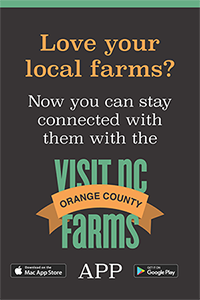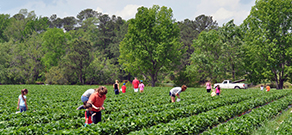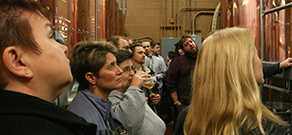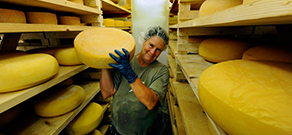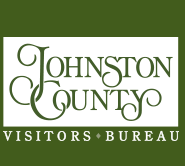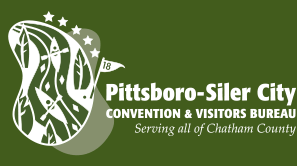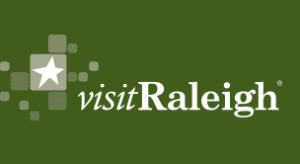
Places to Go
Chatham, Durham, Johnston, Orange, and Wake, are five counties that truly excel at bringing visitors closer than ever to the agricultural heartbeat of North Carolina. From wine to goats and from fruit to ham, Piedmont visitors can discover what makes the farms of North Carolina truly exceptional.
These sites are only a selection of the great agritourism attractions in the Triangle. For more things to do in each county, be sure to check out the See More links below!
CHATHAM COUNTY
Southwest of the Research Triangle Area, Chatham County includes towns like Pittsboro and Siler City along with the beautiful Jordan Lake. Here, visitors can traverse the Heart of North Carolina Wine Trail, which is a collection of five wineries and taste award-winning wines, talk with the wine makers, and tour the vineyards.

Chatham County is also home to Celebrity Goat Dairy, where residents can tour and lunch in scenic country landscapes at a historic inn known for its goats and open barn events, local food dinners, and chevre. Jean’s Berry Patch is another feature not to be missed. This farm produces a variety of fresh fruits and vegetables, and transforms into a pumpkin patch in the fall.
Finally, Chatham County is also known for Farmers’ Alliance, a general merchandise store that opened in 1888 and is still in business today. The Farmers’ Alliance Store carries work clothes, boots, garden supplies, snacks, and more.
DURHAM COUNTY
Durham recently won the title “Tastiest Town in the South” from Southern Living, which is a great recognition of its nationally celebrated food scene, and visitors are fortunate enough to get a peek behind the curtain to see where it all starts.
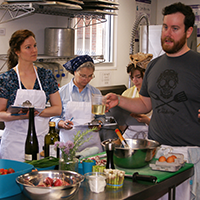
Visit Blue Whistler Farm, a working farm that also hosts summer camps for children. Funny Girl Farm has a year-round farmstand where you can buy fruits, vegetables, eggs, and other local artisan products. Durham is the epicenter of the farm-to-fork movement in North Carolina, evident at breweries and restaurants like Fullsteam Brewery,Piedmont, and Watts Grocery.
Throughout the year you can also visit farmers’ market in Durham. Check out the Durham Farmers’ Market, open year-round each Saturday at Central Park. Or visit the South Durham Farmers’ Market, open year-round and held at the Greenwood Commons Shopping Center.
The Sarah P. Duke Gardens is a 55-acre garden known as one of the premier public gardens in the U.S., with 200+ colorful plant varieties viewable from more than five miles of walkways and paths. Seasonal plantings, fruits, and vegetables in the Charlotte Brody Discovery Garden ensure that each visit is a new experience. Durham also has some of the finest garden centers in the area, including Witherspoon Rose Culture, one of the largest collections of roses in the area with more than 2,000 varieties. For more than 60 years, Witherspoon Rose Culture has been helping rose gardeners make their roses look their best.
JOHNSTON COUNTY
Johnston County lies southeast of Raleigh and Wake County. Start your journey in Johnston County on the Beer, Wine, and Shine Trail. The two wineries, moonshine distillery, and two breweries on the Beer, Wine, and Shine Trail are family owned and operated and booming with rich history. Each winery offers special event space for weddings and social gatherings.
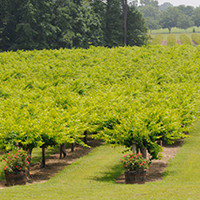
For another fabulous slice of farm life, visitors interested in North Carolina farming history should visit the Tobacco Farm Life Museum. Visitors can tour the 6,000 square foot museum that chronicles the everyday life of Eastern North Carolina farm families and see the depression-era homestead including the kitchen, packhouse, and tobacco barn. Smith’s Nursery is a family owned and operated nursery and produce farm committed to producing high quality fruit, vegetables, and crops while maintaining the sustainability of farming in North Carolina. Visitors will enjoy berry and pumpkin seasons and the year-round garden center.
It wouldn’t be Smithfield without a little ham! Johnston County Hams, Inc. offers visitors a viewing room of the last stage of “drying” the country hams and other products are available in the gift shop. Johnston County Hams are award winning and are shipped around the world.
{ See more agritourism places in Johnston County }
{ See a video to learn more about the farm-to-fork movement in Johnston County }
ORANGE COUNTY
Home to Chapel Hill and the University of North Carolina, Orange County is more than just tar heels and academics. The county also hosts the Carrboro Farmers’ Market, known for high quality, locally grown produce, prepared foods, flowers, and crafts since 1979. Everything sold at the market is grown or produced by the vendors, all within a 50-mile radius.

Another favorite with locals is the Maple View Agricultural Center and Maple View Farm Country Store, in Hillsborough. The store sells ice cream and other dairy products from the farm’s cows, as well as some meat. Just up the street, children can learn about North Carolina agriculture and see crops and animals.
In the fall, visitors should experience McKee’s Cedar Creek Farm Cornfield Maze which is open on the weekends from late September to early November; it is one of the state’s largest corn mazes and sits on a 190-acre farm in Rougemont, NC. The farm has been in the family since the late 1700s.
Orange County has an agritourism mobile app that connects visitors to the agricultural assets of the Chapel Hill and rural Orange County communities. The app helps connect you with farms where you can pick your own fruit, find fruit stands and enjoy farms that are open to the public. Also find restaurants that source their food locally and area farm markets. VISITNC Farms/Orange County is available for IOS and Android at your app store.
WAKE COUNTY
Wake County includes Raleigh, Cary, Morrisville, and nine other suburban towns, but it should not be disregarded for its natural beauty. Greater Raleigh visitors often note the depth and breadth of things to see and do in a green and lush natural setting.
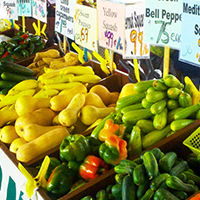
Among the major agritourist attractions, Historic Oak View County Park is a 19th-century historic farmstead with a mission to interpret North Carolina’s agricultural heritage and rural history via educational programs, special events, and exhibits. Admission is free, and the park features an 1855 Greek Revival house, detached kitchen, cotton gin house, livestock barn, carriage house, pecan grove, and herb garden. Enjoy picnic facilities and stop in the Farm History Center, where kids learn through play in the interactive “Farmer’s Corner.”
Raleigh’s J.C. Raulston Arboretum at North Carolina State University is internationally recognized as a premier collection of trees and shrubs with 5,000 different plants on display. Stroll along the stunning Perennial Border and across the rooftop garden or through the Xeric Garden, Japanese Garden, formal white garden, and magnolia and conifer collections.
The State Farmers Market is more than fresh vegetables, it’s a family adventure. Considered one of the nation’s best and most modern markets, visitors enjoy 75 acres of indoor/outdoor specialty shops, restaurants, and garden centers, with fruits, vegetables, meats, and gift products from across the state.
PLACES TO GO
The Triangle’s agricultural sites range from pick-your-own berry farms to goat cheese homesteads to farm stands. Discover where some of the best food in the Triangle comes from.
{see more}
AGRITOURISM EVENTS
There’s always something happening with the Triangle’s agricultural offerings. Visitors are encouraged to attend events ranging from farmers’ markets to pepper festivals.
{see more}
INTINERARIES

